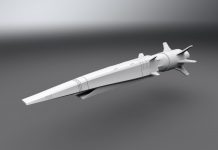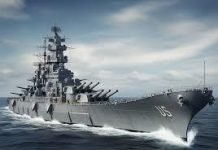
Germany’s navy has taken delivery of the first of eight Boeing P-8A Poseidon aircraft, designed for maritime surveillance and anti-submarine operations, the country’s defense forces announced Thursday.
The aircraft were handed over at Boeing’s production facility in Seattle, Washington, and are intended to enhance Germany’s global maritime monitoring capabilities, with a particular emphasis on tracking and countering enemy submarines, according to Vice Admiral Jan Christian Kaack, the navy’s chief of staff.
Germany opted to acquire the P-8A Poseidon in 2021 to replace its aging fleet of P-3C Orion aircraft, which have long been used for naval reconnaissance and submarine-hunting tasks. The initial order included five P-8s at a cost of €1.1 billion ($1.29 billion). Following Russia’s 2022 invasion of Ukraine and the launch of a special defense fund, the country added three more aircraft to its order. The navy is reportedly considering the purchase of an additional four planes, potentially bringing the total to twelve.
Although Boeing, an American firm, manufactures the aircraft, the German press release highlighted that maintenance responsibilities will be handled domestically by ESG and Lufthansa Technik. Concerns about technological independence and military sovereignty have grown in Germany and across Europe, particularly after U.S. President Donald Trump’s return to office.
Ten U.S. allies, including Japan, South Korea, Norway, Canada, and the United Kingdom, have also placed orders for the P-8 Poseidon. Boeing noted that the global P-8 fleet has accumulated over 700,000 flight hours so far.
The newly delivered planes will join the Marinefliegergeschwader 3, or Naval Aviation Squadron 3, based along Germany’s North Sea coast in the northwest. NATO’s capacity to monitor the North and Baltic seas has come under increased scrutiny due to Russian naval activity, including the movements of military vessels and the Kremlin’s “shadow fleet” of aging oil tankers used to evade Western sanctions.
Kaack described the P-8A as a “flying guardian,” highlighting its significant improvements in mission range, sensor technology, and operational endurance. “Our naval aviators are eagerly anticipating the P-8A, and I can assure you, their inspector is as well,” he added, referencing his official title in the German military.




